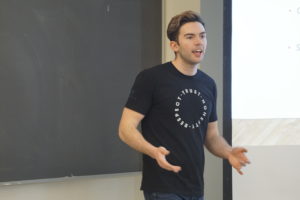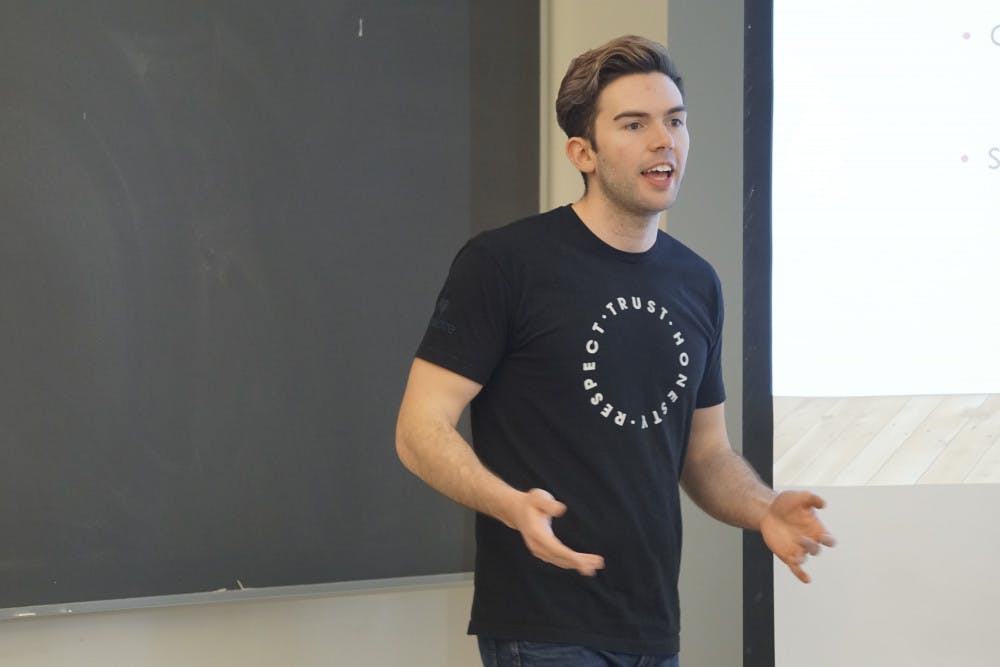By Luke Vickers
Correspondent
The College’s Anti-Violence Initiatives held a workshop in the Social Sciences Building on Feb. 13 to discuss the meaning of toxic masculinity. The psychology department and the women’s, gender, and sexuality studies department co-sponsored the event.
The workshop was led by Zach Gall, the office of violence against women grant project director and prevention education specialist, and focused on a recent controversial Gillette ad titled “We Believe: The Best Men Can Be.” The advertisement challenges certain male stereotypes and serves as a call to action for men to embrace healthy masculinity.

“I think this was the first time in recent memory that we’ve had a very focused reaction to something,” Gall said. “A lot of people had feelings about this ad — good, bad, indifferent. I thought it was a good way to do something really relevant to people right now, but also use the messaging we’ve been going with.”
Gall gave a 45-minute presentation on the subject and stopped often to receive input from the audience. He began the presentation by defining both toxic and healthy masculinity and then transitioned into explaining the commercial’s role in this conversation.
Gall wanted attendees to walk away with the idea that masculinity is not inherently bad, but that it depends on how it is expressed. He explained that healthy masculinity is, in part, the actions taken to improve wellness and prevent the harm of others.
“When we’re talking about toxic or healthy masculinity we’re not saying that people who exhibit masculinity are bad, or that men are bad,” Gall said. “We’re saying that there are things in the ways we’ve taught each other to behave that can harm others.”
Gall also spoke about how crucial discussions on toxic masculinity are on college campuses.
“It’s very easy to screen or filter ... what we’re exposed to,” he said. “So things like this can expose people to things they may not normally take a look at. And then I think for this topic specifically its something I fully believe people on our campus are struggling with.”
Gall’s message was received by a large audience. The event was widely attended — some attendees had to sit on the floor, while others had to be turned away due to overcrowding.
Attendees of the workshop, such as senior history secondary education dual major Bryan Rothman, reflected on the messages of the presentation.
“I think the biggest takeaway is the fact that being masculine itself is not a bad thing and that everyone has the capacity to change themselves from within and change the society around them,” he said. “There’s still more detailed analysis to be done, but for many people who are unfamiliar with the concepts, this was the best first step on the path toward a better society.”







